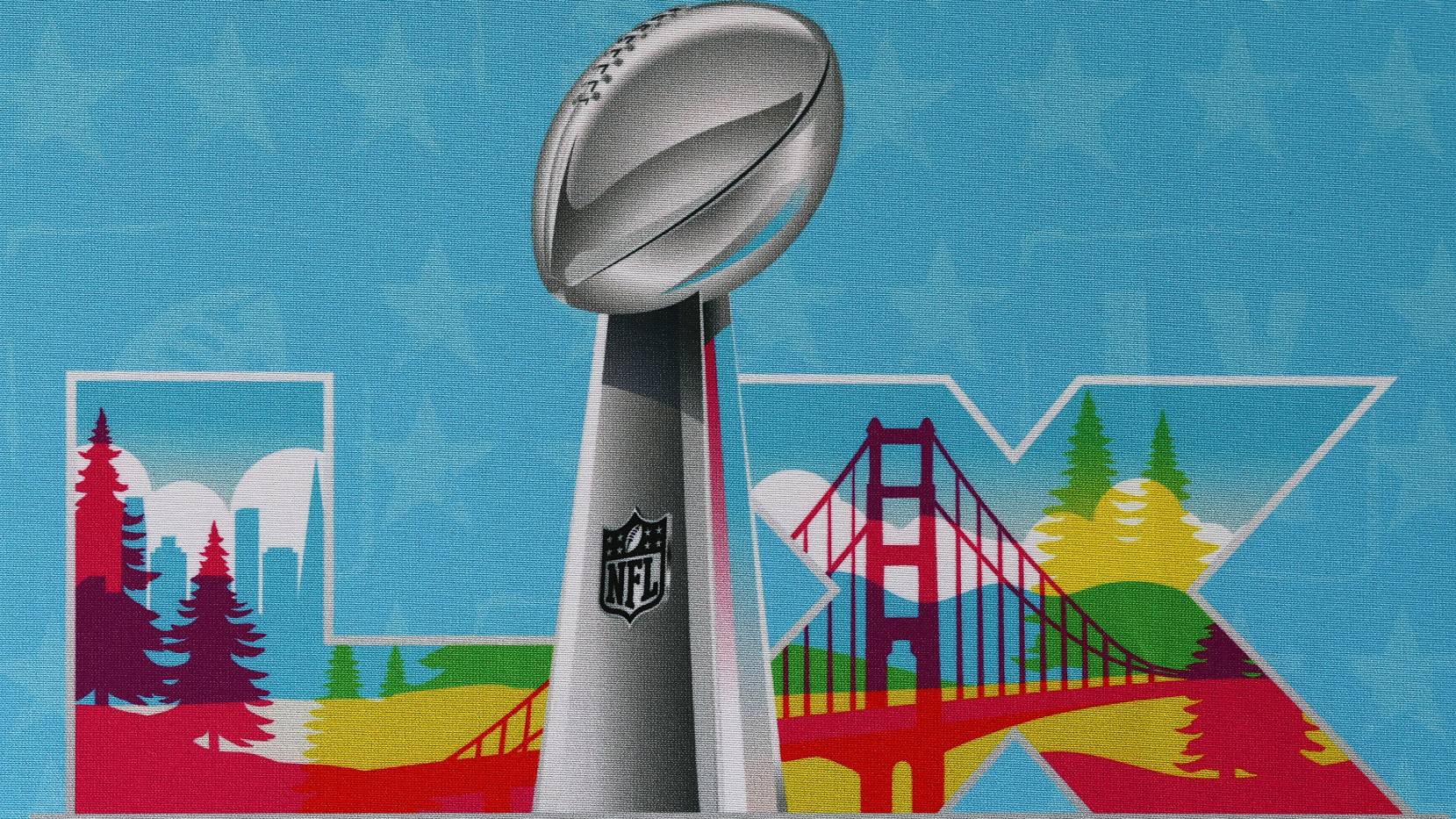Fortnite vs. Apex Legends: Which Battle Royale Is Right For You?
Here's how Fortnite compares to Apex Legends, the latest game to dominate the battle royale shooter arena.
Here at Tom’s Guide our expert editors are committed to bringing you the best news, reviews and guides to help you stay informed and ahead of the curve!
You are now subscribed
Your newsletter sign-up was successful
Want to add more newsletters?

Daily (Mon-Sun)
Tom's Guide Daily
Sign up to get the latest updates on all of your favorite content! From cutting-edge tech news and the hottest streaming buzz to unbeatable deals on the best products and in-depth reviews, we’ve got you covered.

Weekly on Thursday
Tom's AI Guide
Be AI savvy with your weekly newsletter summing up all the biggest AI news you need to know. Plus, analysis from our AI editor and tips on how to use the latest AI tools!

Weekly on Friday
Tom's iGuide
Unlock the vast world of Apple news straight to your inbox. With coverage on everything from exciting product launches to essential software updates, this is your go-to source for the latest updates on all the best Apple content.

Weekly on Monday
Tom's Streaming Guide
Our weekly newsletter is expertly crafted to immerse you in the world of streaming. Stay updated on the latest releases and our top recommendations across your favorite streaming platforms.
Join the club
Get full access to premium articles, exclusive features and a growing list of member rewards.
Battle royale games have been dominated by Fortnite, even after the release of Call of Duty’s own interpretation of the formula with Blackout. Now it’s time for EA and Respawn to take a crack at it with the Titanfall developer’s newly released Apex Legends.
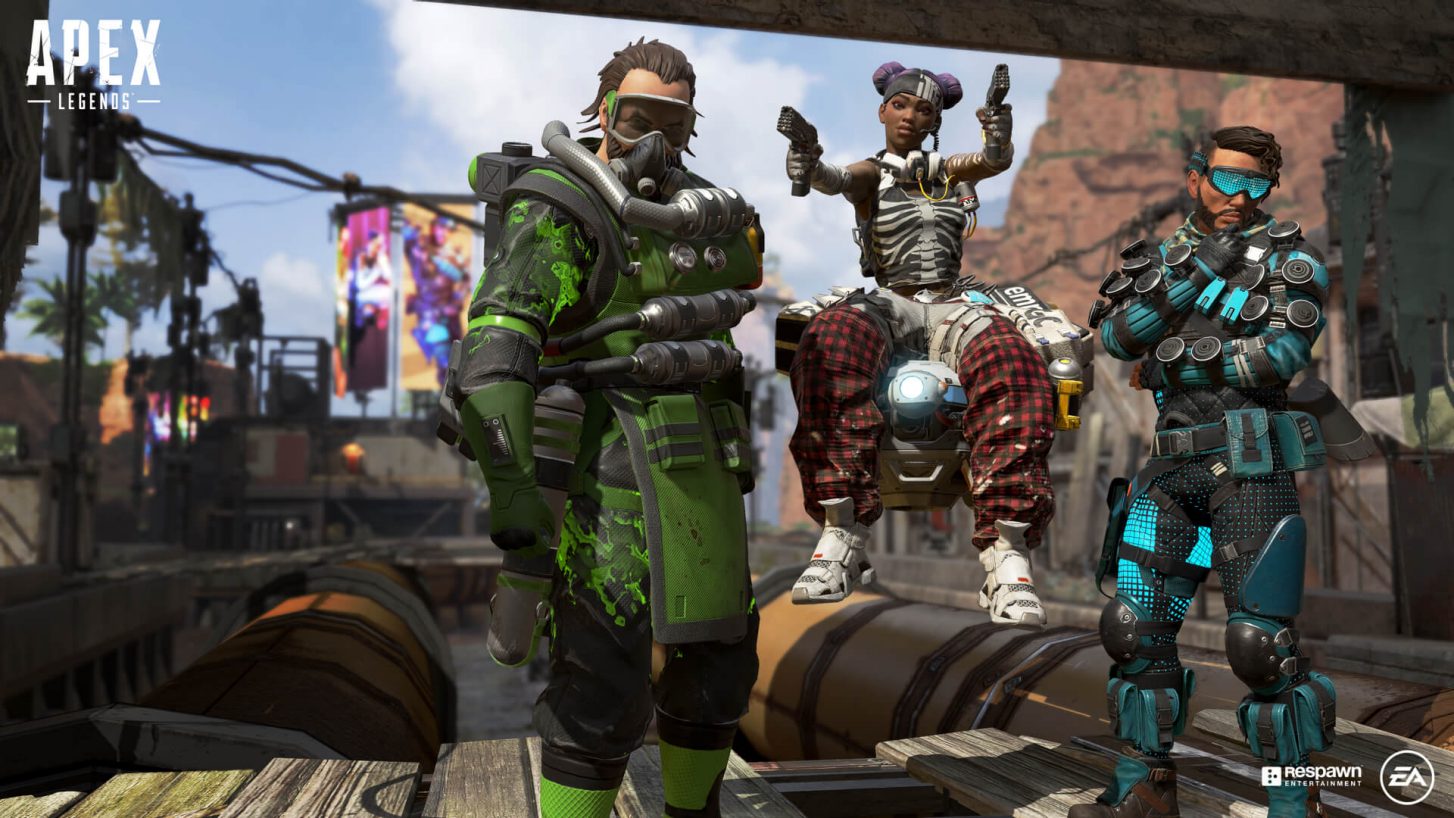
Fortnite fans looking for something new should pay attention to Apex Legends, which puts a team-based, hero-shooter twist on the genre and poised to become a big contender in the battle royale space.
How does Apex compare to Fortnite and what should Fortnite players know before jumping in? Keep reading to find out.
Pricing and Battle Passes
Apex Legends offers the same free-to-play experience as Fortnite. Unlike PUBG or Blackout, which are paid games, Apex Legends aims to make all of its money from cosmetic purchases using methods very similar to Fortnite’s -- no upfront purchase required.
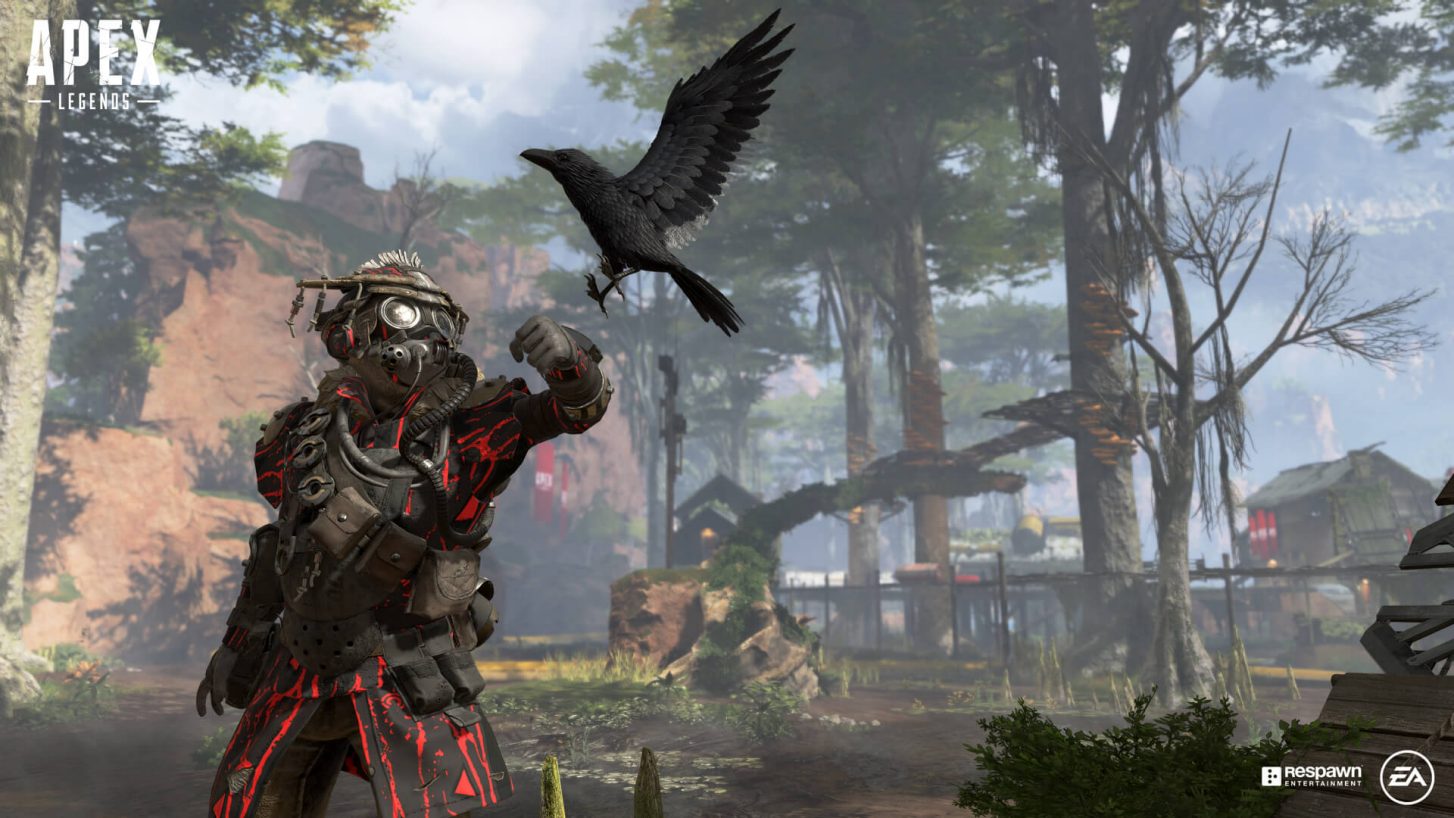
In March 2019, Apex will launch its battle pass, designed to work almost identically to Fortnite’s battle pass with both free and premium versions that each unlock different cosmetics for your characters and your weapons. Like in Fortnite, you can also directly buy promotional items using the in-game currency which can be earned through play or purchased with real money.
Battle passes will run for three month seasons, after which new content will be loaded into the pass and all player’s progress will be reset and a new pass will need to be purchased. Apex also provides loot boxes, both earned and for sale.
Availability and Cross-Platform Play
Fortnite is famously available on every major platform, including PS4, Xbox One, Switch, PC, Mac, iOS and Android. So far, Apex Legends is playable only on PC (through the EA Origin launcher), PS4 and Xbox One, so Switch and mobile fans are out of luck for now.
Get instant access to breaking news, the hottest reviews, great deals and helpful tips.
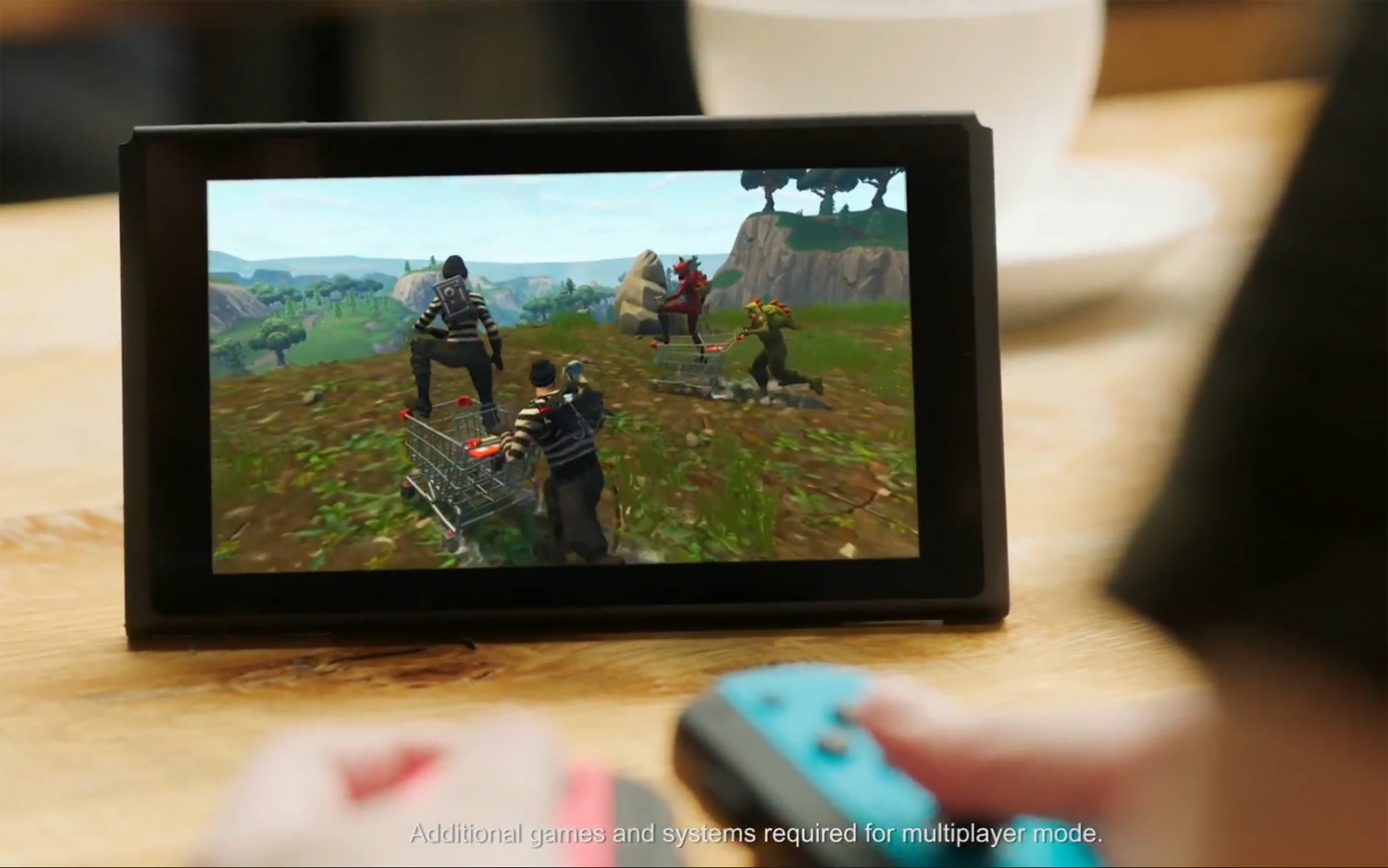
Cross play between the available platforms is not currently enabled for Apex, which is another check mark in the column for Fortnite. But Respawn has confirmed that the feature is in the works.
Gameplay: A Tale of Two Battle Royales
To Fortnite fans and fans of any battle royale, the rules of Apex are exactly what you would expect. A large number of players airdrop onto a map, players then start scrounging for weapons and armor in buildings and item caches, then they start moving to stay inside of a shrinking play space designed to keep the pace of matches moving and force confrontation.
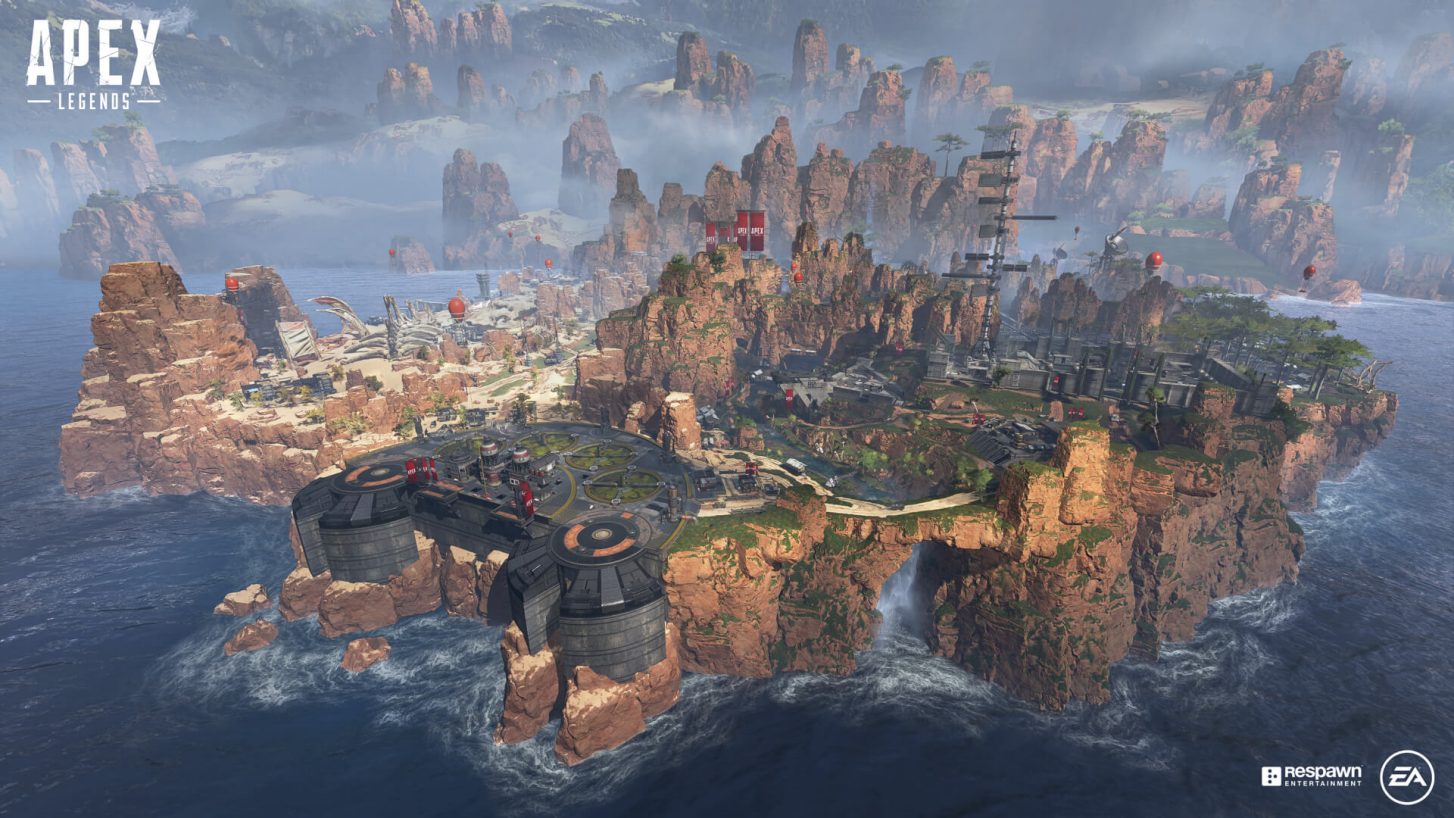
At launch, matches all take place on one map with a 60 player cap, compared to Fortnite’s 100. The developer has commented that they plan on expanding the player cap in the future.
The weapons on offer contain the usual small pistols, submachine guns, shotguns, assault rifles, large caliber sniper rifles, incendiary and frag grenades.
However, that's where the similarities between these games end.
Hero Shooter Mechanics vs. Building Mechanics
The big hook of Apex is its similarities to hero shooters like Overwatch. Before each match you can pick from one of eight different hero classes called Legends, each has their own passive ability, an active ability on a quick cooldown and an ultimate ability on a longer cooldown. Meanwhile, Fortnite stands out with its building mechanics, which allow you to create walls, ramps and entire structures on the fly in order to protect yourself from enemies and create traps and distractions.
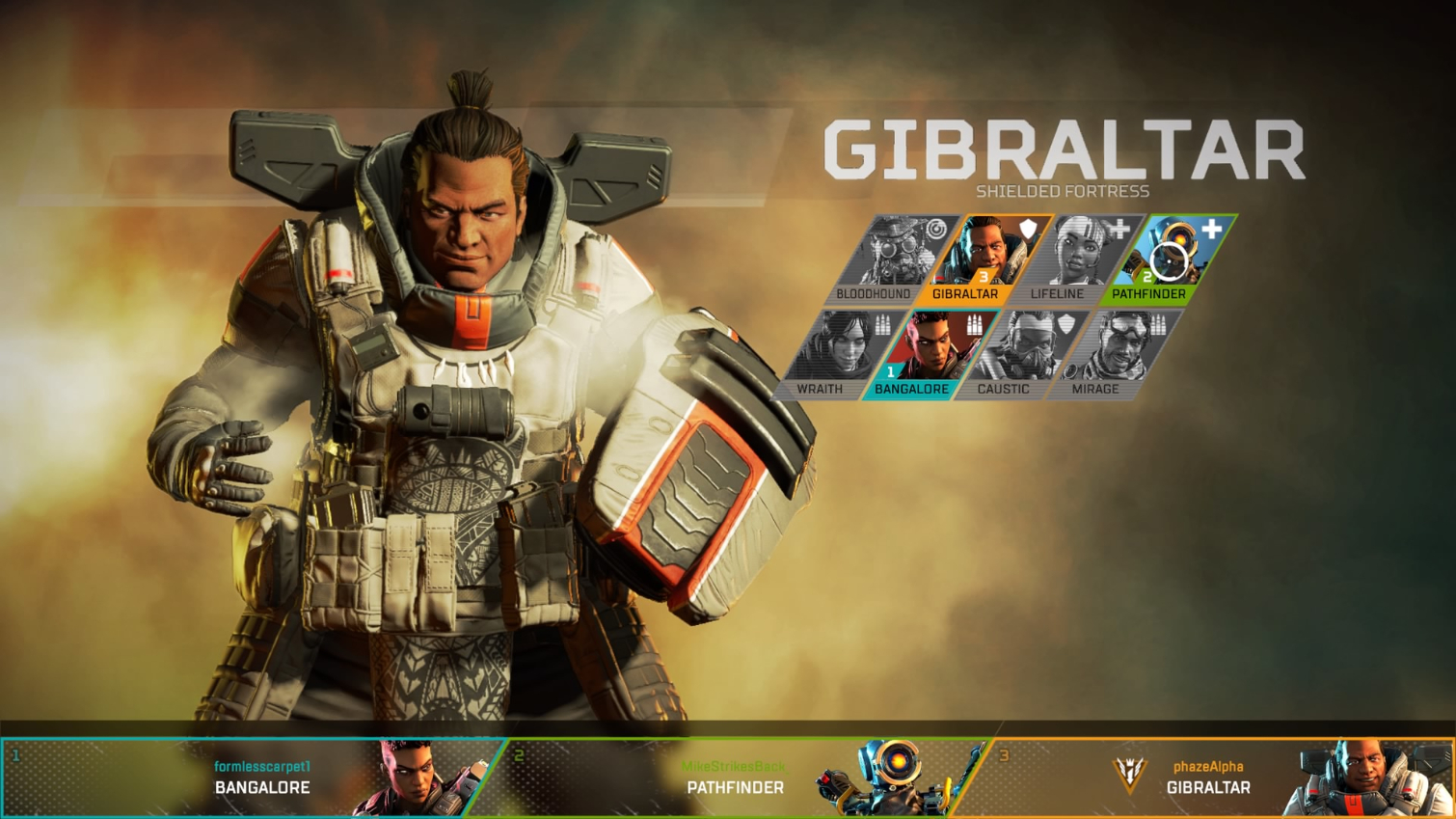
The building mechanics are very unique to Fortnite, even outside of battle royale games, but the hero shooter concept may be more familiar to fans of competitive shooters. Your choice ultimately comes down to how much you like the twitch reflexes needed to place defensive walls and ramps in Fortnite, or how much you like the hero shooter formula and the focus on team composition.
And speaking of teams...
Modes: Squads Only vs. Lots of Options
A big departure from Fortnite and other battle royales is Apex’s requirement of three-person squads in every match. This is meant to go hand-in-hand with the hero shooter design and to get players to use their unique character abilities to help each other out.
MORE: Apex Legends: 13 Key Tips for Starting Out
Players cannot double-up on a single character class, further encouraging a sense of team cooperation. The squad requirement is also integrated into the opening airdrop segment by randomly picking someone as a “jumpmaster” to guide the squad to a single landing spot with the other two members automatically following.
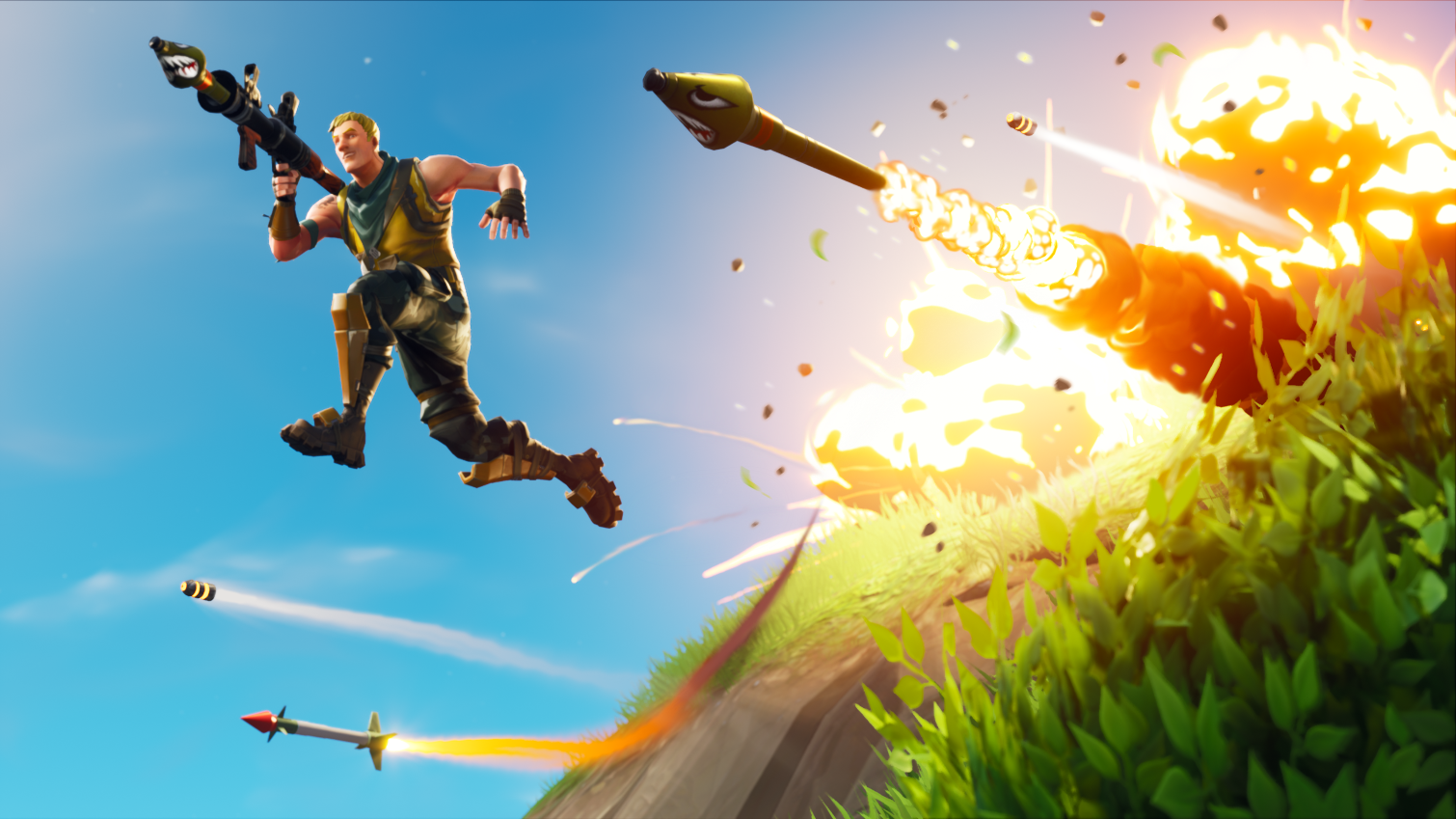
Players who insist on playing solo may find Apex a poor fit, and while playing with friends on voice chat is always ideal, the game does its best to give tools to people playing with strangers without communicating verbally. Fortnite, on the other hand, offers solo, duos (teams of two) and squad (teams of four) modes, and frequently rotates in other limited-time modes, such as huge 50 vs. 50 battles.
Movement and Perspective
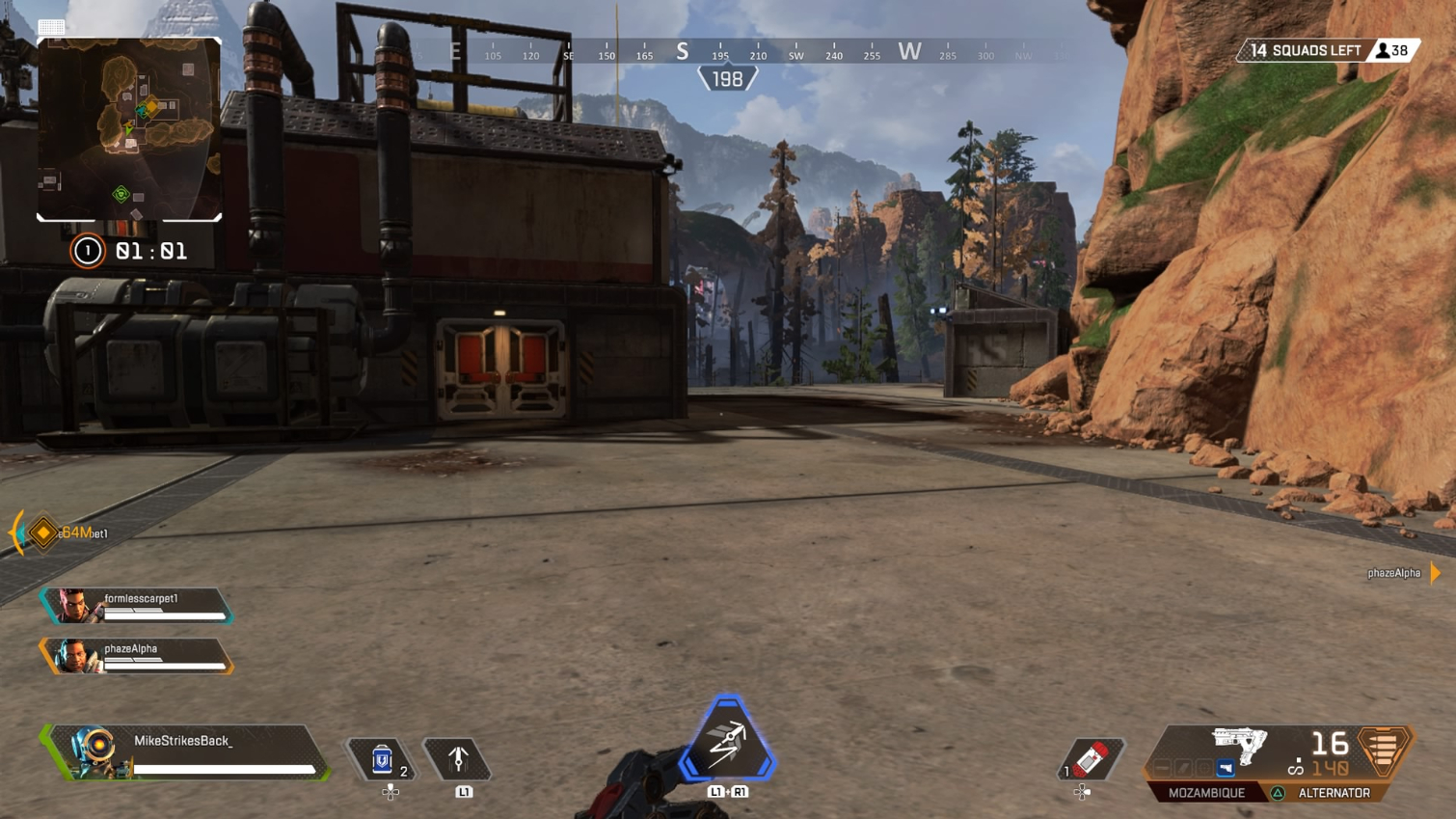
As a Titanfall spinoff, Apex offers a lot of fast movement options including wall climbing and knee slides. Compared to Fortnite’s third-person perspective and more limited movement options, Apex can feel like a much faster paced game, something that Blackout players will likely feel comfortable with.
Reviving Your Teammates
One of Apex's most unique features is that as long as you have one team member left alive, you can revive all of your eliminated allies. It gives people who got a little unlucky early in a match a reason to keep paying attention and it also discourages teams from just quitting out if their friends get iced within minutes of landing.
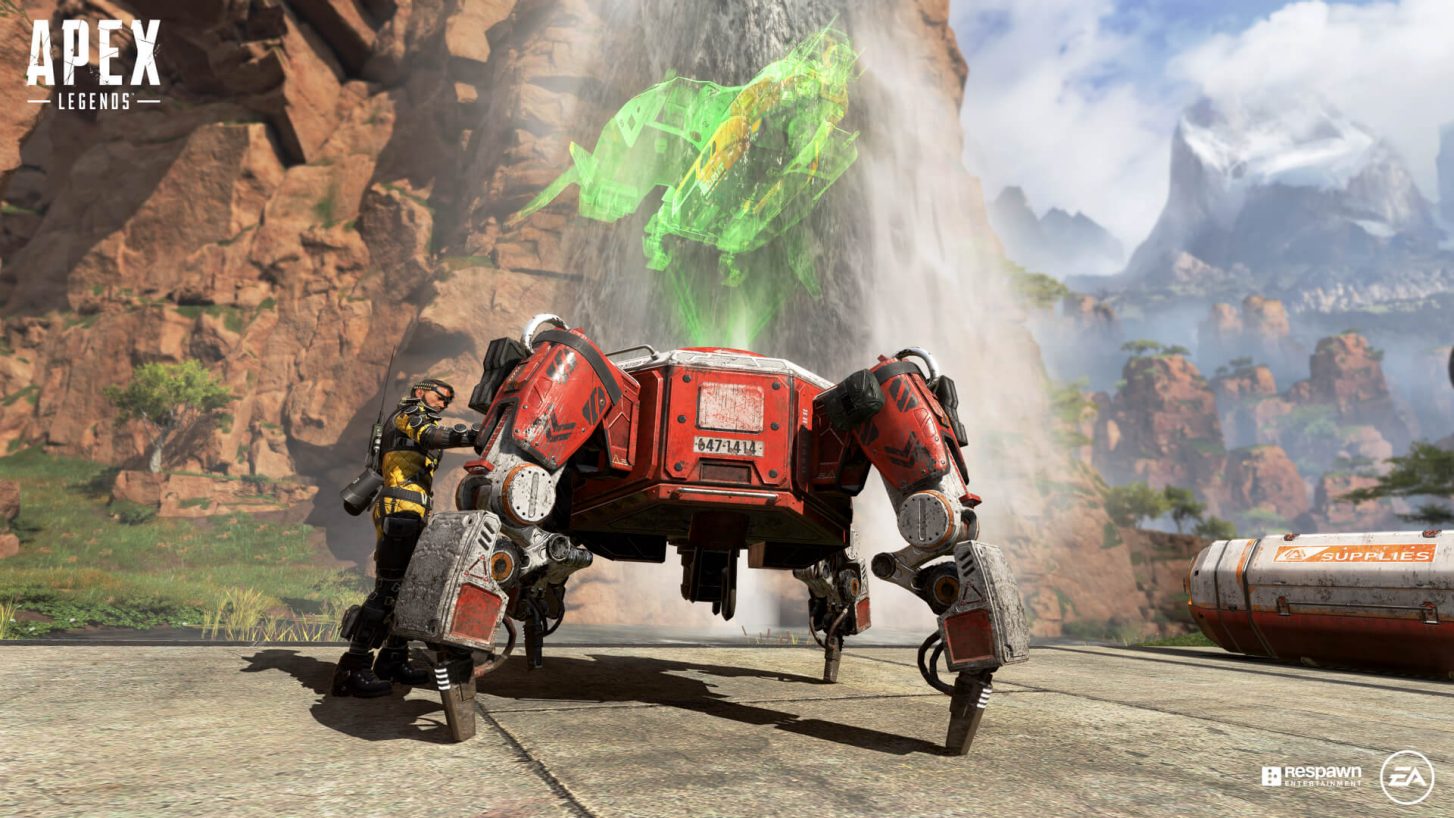
The revival process is very risky, however. Surviving team members need to collect the downed person’s banner from their loot chest where they were eliminated, then take that banner to one of a limited number of revival stations and hope no one is guarding that space while the team members are airdropped back into the match. Fortnite is more straightforward by comparison -- you can revive a downed teammate, but if they get killed, they're gone for good.
Overall Style: Fun and Similarly Surreal
Both Apex and Fortnite are much less realistic than PUBG or Blackout. Both games provide floating damage numbers above enemies’ heads, both games feature funny playable characters and a game world that doesn’t take itself too seriously. In fact, Apex is set up as a kind of reality show contest complete with an announcer.
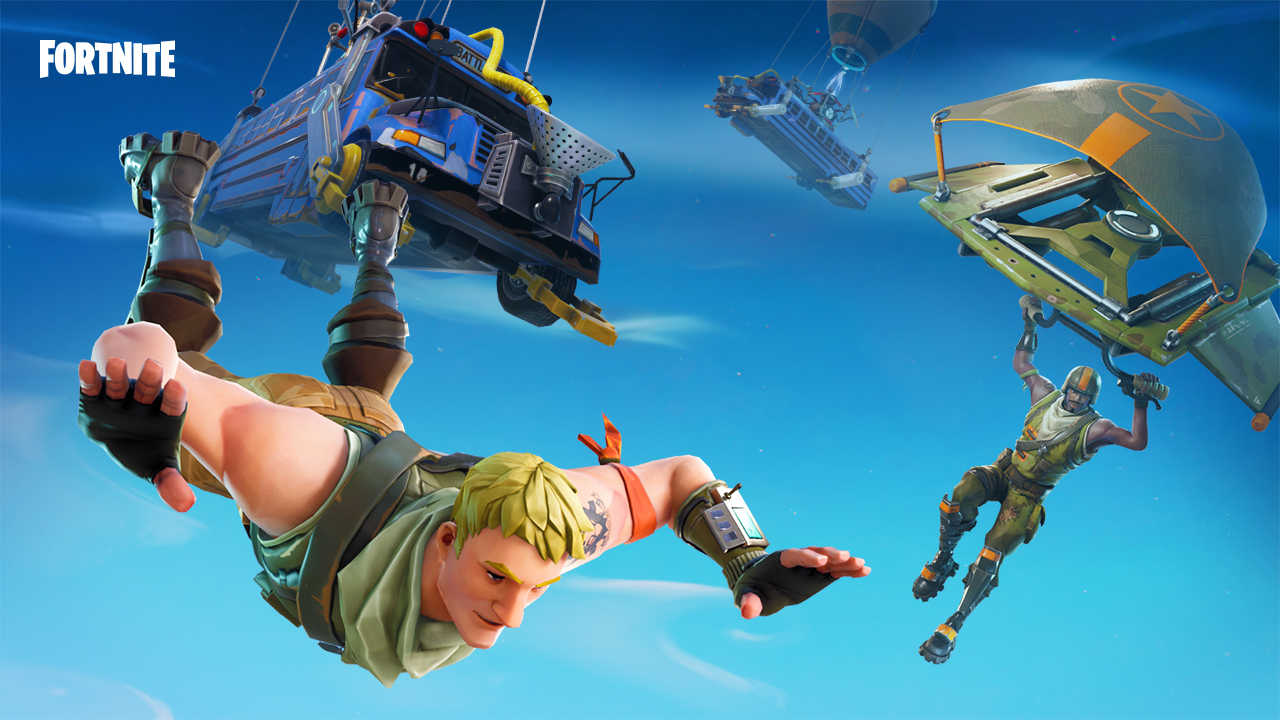
If drab military shooters are a turn-off for you, and if you liked the cartoony world of Fortnite, Apex Legends does a good job of keeping things light. Characters have cool and odd looking unlockable costumes, unlockable taunts and finishing moves to help keep things fun.
It’s not as kid friendly as Fortnite, which is full of cartoon llama pinatas and silly dances, so parents should still do a little research and watch some videos before they give the OK to younger players. But odds are, if you think your kid is old enough to play a game where they shoot realistic guns, they’re old enough for either Fortnite or Apex.
Bottom Line
In just a few short days, Apex Legends has already positioned itself as a legitimate contender to Fortnite's throne. It's team-based, hero-based gameplay makes it unlike any battle royale shooter out there, and its fast, smooth movement will strike a chord with fans of Respawn's previous games. If you want a refreshing battle royale that puts a major emphasis on teamwork, you'll find lots to like about it.
That said, Fortnite is still the biggest game out there for a reason. It's available on every platform imaginable, has an inviting, kid-friendly style, and has a ton of different ways to play for both solo and team-minded players. In terms of sheer variety, Epic's shooter phenomenon is hard to top.
Fortunately, both of these games are completely free to play, so there's no reason not to hop into both and see which is best for you.
Andrew Melcon is a freelance writer who specializes in covering games and gaming hardware. He's tackled everything from PC game controllers to Pokémon and PUBG and his work has appeared on sites including Tom's Guide, Tom's Hardware, Laptop Mag, and more.
 Club Benefits
Club Benefits










